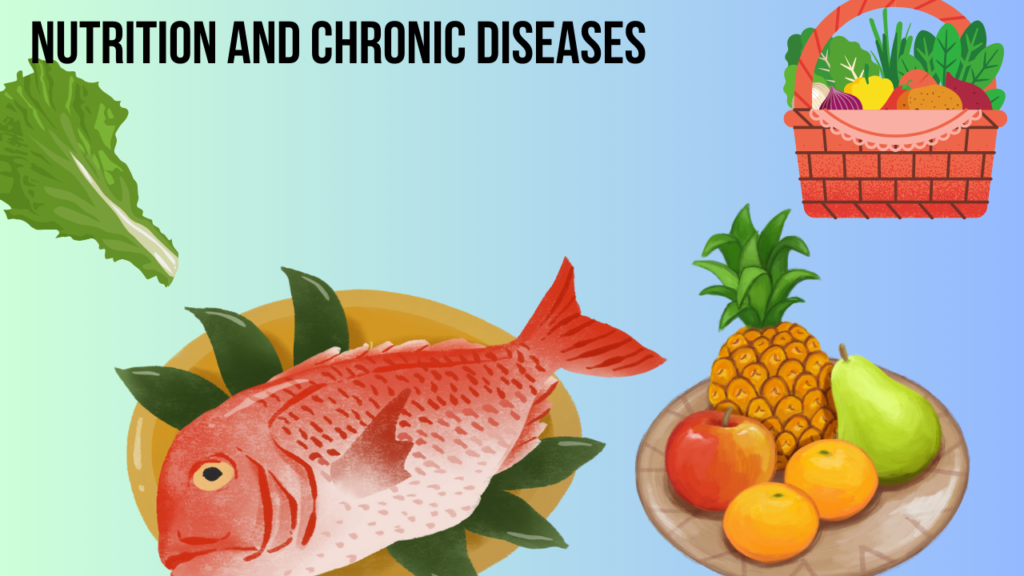Nutrition and Chronic Diseases

Nutrition plays a crucial role in influencing chronic diseases, which are long-term health conditions often characterized by a gradual onset and a persistent impact on an individual’s overall well-being. Chronic diseases include conditions such as cardiovascular diseases, diabetes, obesity, certain cancers, and neurodegenerative disorders. The relationship between nutrition and chronic diseases is complex and multifaceted, involving various dietary factors, lifestyle choices, and genetic predispositions.
Here are some key aspects of the connection between nutrition and chronic diseases:
1. Dietary Patterns:
Mediterranean Diet: Research suggests that a Mediterranean-style diet, rich in fruits, vegetables, whole grains, nuts, seeds, and healthy fats, is associated with a lower risk of cardiovascular diseases and certain cancers.
DASH Diet: The Dietary Approaches to Stop Hypertension (DASH) diet, which emphasizes fruits, vegetables, lean proteins, and low-fat dairy, is recommended for managing and preventing hypertension.
2. Macronutrients:
Fats: The type and amount of dietary fats consumed can impact cardiovascular health. Unsaturated fats, such as those found in olive oil, avocados, and fatty fish, are considered heart-healthy. Saturated and trans fats, often present in processed foods, can contribute to cardiovascular diseases.
Proteins: High intake of red and processed meats has been associated with an increased risk of certain cancers, while plant-based protein sources may have protective effects.
3. Micronutrients:
Antioxidants: Vitamins and minerals with antioxidant properties, such as vitamins C and E, selenium, and beta-carotene, may help protect cells from oxidative stress and reduce the risk of chronic diseases.
Vitamin D: Adequate vitamin D intake is important for bone health and may also play a role in preventing certain chronic diseases.
4. Sugar and Salt Intake:
Excessive consumption of added sugars has been linked to obesity, type 2 diabetes, and cardiovascular diseases.
High salt intake is associated with hypertension and an increased risk of cardiovascular events.
5. Fiber:
Diets high in fiber, derived from whole grains, fruits, and vegetables, are associated with a lower risk of heart disease, diabetes, and certain cancers.
6. Lifestyle Factors:
Physical Activity: Combining a healthy diet with regular physical activity is essential for preventing and managing chronic diseases.
Weight Management: Maintaining a healthy weight is crucial for reducing the risk of obesity-related chronic conditions.
7. Individual Variability:
Nutritional needs and responses can vary among individuals due to factors such as genetics, age, gender, and existing health conditions.
It’s important to note that while nutrition plays a significant role, other lifestyle factors such as physical activity, sleep, and stress management also contribute to overall health and the prevention of chronic diseases. Additionally, individuals should consult with healthcare professionals or registered dietitians to tailor dietary recommendations based on their specific health needs and conditions.






